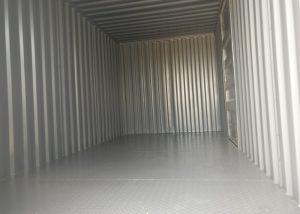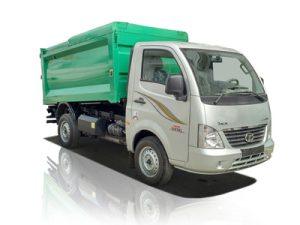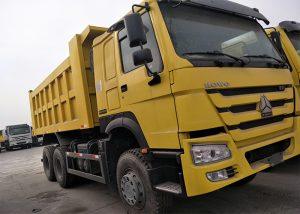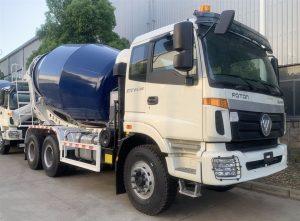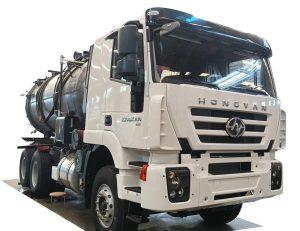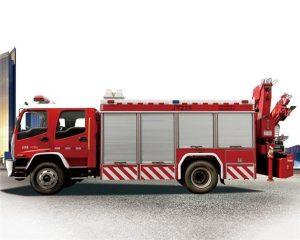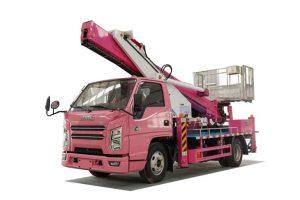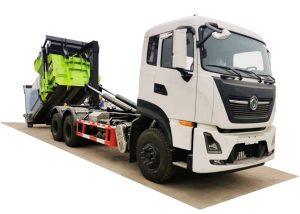Monday to Saturday - 8:00 -17:30
Tank Trucks for Sale: Comprehensive Buying Guide
Introduction
Demand for tank trucks is on the rise as industries requiring liquid transportation grow. Whether you need to transport fuel, water, or chemicals, selecting the right tank truck can significantly affect your operations. In this article, we’ll explore various tank trucks for sale, delve into their features, compare different types, and provide essential tips to assist you in making an informed purchase.
Understanding Tank Trucks
What are Tank Trucks?
Tank trucks, also known as tankers, are specialized vehicles designed to transport liquids. They come in various sizes and configurations, allowing them to carry everything from bulk liquids like water and fuel to hazardous materials.
Importance of Tank Trucks
Tank trucks play a crucial role in logistics, supplying essential resources to businesses and consumers alike. The ability to safely and efficiently transport liquids can directly affect supply chains and operational efficiency.
Types of Tank Trucks
1. Fuel Tank Trucks
Fuel tank trucks are designed explicitly for transporting petroleum products such as gasoline, diesel, and other fuels. They are equipped with safety features to minimize risks during transit.
2. Water Tank Trucks
Water tank trucks are used primarily for transporting potable water or non-potable water for agricultural and industrial applications. These trucks can vary in size from small tanks to larger units for municipal work.
3. Chemical Tank Trucks
Chemical tank trucks are designed to transport a variety of liquid chemicals. This includes corrosive, flammable, and toxic materials, necessitating specific safety features and tank materials.
4. Dry Bulk Tank Trucks
While primarily designed for liquids, some tankers can also transport dry bulk materials, such as grains, powders, and pellets. These trucks have specific configurations to handle such materials.
Features to Look For When Buying Tank Trucks
1. Capacity
Understanding the capacity of the tank truck is essential. Choose a truck size that meets your transportation needs without exceeding weight limits on roads. Common capacities range from 1,000 to 10,000 gallons, depending on the type of liquid being transported.
2. Material and Safety Compliance
The materials used in the construction of tank trucks are crucial, especially for transporting chemicals. Look for trucks made from high-grade stainless steel or aluminum, and ensure they meet safety standards as defined by the Department of Transportation (DOT).
Safety Features
Safety features such as spill containment systems, emergency shut-off valves, and pressure relief valves are crucial for hazardous cargo.
3. Type of Liquid Transported
Different liquids require different types of tanks. Ensure the tank truck you select is appropriate for the type of liquid you intend to transport, whether it is fuel, water, or chemicals.
4. Drive Type
Selecting the right drive type—either 2WD or 4WD—can enhance the truck’s performance. Off-road applications may benefit from 4WD, while on-road driving might only require 2WD.
5. Brand Reputation and Warranty
Investigate the brand’s reputation in the market. Brands known for reliability and excellent customer service often provide better warranties and support.
Where to Find Tank Trucks for Sale
1. Online Marketplaces
Numerous online platforms specialize in the sale of tank trucks. Websites like TruckPaper and Ritchie Bros. list various models, allowing you to filter by price, location, and specifications.
2. Dealerships
Local and national dealerships often have tank trucks for sale. Visit a dealership for test drives and to assess the condition of the trucks firsthand.
3. Auctions
Both live and online auctions can be fruitful avenues for finding tank trucks. Auctions often provide opportunities to acquire trucks at competitive prices.
4. Trade Shows and Expos
Industry trade shows offer a great opportunity to see different models up close, speak with manufacturers, and get insights into the latest technologies and trends.
Cost Factors for Tank Trucks
1. Initial Purchase Price
The initial purchase price can vary widely based on size, brand, and features. On average, you may expect to pay anywhere from $25,000 to $150,000 for a new tank truck.
2. Maintenance Costs
Routine maintenance is vital for the longevity of tank trucks. Factor in the cost of regular maintenance, tires, and inspections, which can impact your overall operating budget.
3. Insurance Costs
Due to their liquid cargo risks, insuring tank trucks can be expensive. Ensure you obtain quotes from multiple providers to find the best coverage that suits your needs without breaking the bank.
4. Operational Costs
Consider fuel efficiency, registration fees, and any road tolls you may encounter. These operational costs can affect the overall expense of owning a tank truck.
Financing Options for Buying Tank Trucks
1. Traditional Bank Loans
One common financing route is through bank loans. Approach local banks for loans tailored towards commercial vehicles.
2. Equipment Financing
Equipment financing allows you to secure funding based on the value of the tank truck, often leading to lower interest rates and more flexible terms.
3. Leasing Options
Leasing a tank truck can be a wise decision for businesses looking to minimize upfront costs. It allows you to use the truck without a long-term commitment.
Examples of Popular Tank Trucks on the Market
1. Freightliner Cascadia Tanker
The Freightliner Cascadia is a favorite among operators for its comfort, fuel efficiency, and reliability. Its versatile configurations make it ideal for various liquids.
2. Kenworth T800 Tank Truck
The Kenworth T800 offers rigorous construction and advanced aerodynamics that enhance fuel efficiency, making it perfect for long hauls of liquid cargo.
3. Peterbilt 579
The Peterbilt 579 combines innovative technology with superior comfort, offering an aerodynamic design that improves fuel economy and enhances performance.
Practical Tips for Buying Tank Trucks
1. Do Your Research
Conduct thorough research on the models and manufacturers. Read user reviews and check ratings to gauge reliability.
2. Inspect Before Buying
Always inspect the truck. Look for signs of wear, rust, or previous damages. If possible, take it for a test drive.
3. Understand Your Needs
Clearly define your requirements before making a purchase. Consider load capacity, types of liquids transported, and regulations specific to your region.
4. Consult with Experts
Consult with industry experts or hire a mechanic to evaluate the condition of the truck before finalizing your purchase. Their insights can be invaluable.
Frequently Asked Questions (FAQ)
1. What is the average lifespan of a tank truck?
The average lifespan of a tank truck is generally around 15 to 20 years, depending on the maintenance and operating conditions.
2. Are there specific licenses required to operate a tank truck?
Yes, operating a tank truck often requires a commercial driver’s license (CDL) with a tank endorsement, depending on local regulations.
3. Can I finance a used tank truck?
Absolutely! Many financing options are available for used tank trucks, including bank loans, equipment financing, and leasing agreements.
4. What safety features should be present on a tank truck?
Key safety features include spill containment systems, emergency shut-off valves, pressure relief valves, and proper signage for hazardous materials.
5. How do I determine if a tank truck is right for my business?
Evaluate your transport needs, types of liquids, capacity, and budget. Consulting with industry experts or a reputable dealer can also help in making this decision.
6. Where can I find tank trucks for sale?
You can find tank trucks for sale online at marketplaces, through dealerships, at auctions, and at industry trade shows.


